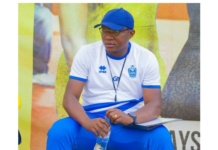After athlete Edson Kumwamba had indicated to Nyasa Times that his watch, which has a GPS tracking application on it designed to calculate the kilometers, pace and calories used during a race, indicated to him that it showed that Sunday’s Blantyre Marathon’s length was 34.42km and not the 42.2km as it on record for, there was a lot of hot debate on social media on this revelation.

Malawi National Council of Sports, through Executive Director George Jana, as well as the marathon’s main organising committee vehemently stood their ground that the route was correctly measured by experts and is indeed 42.2km.
The marketing and public relations officer for the main organising committee, Unkhaku Ng’oma; who had been sceptical himself since all to do with the route was done by the committee’s technical members, invited this reporter to drive through the route on Thursday evening and we discovered that indeed it is 42.2km.
Lilongwe-based Joshua Kungwezo, who has a certificate in GPS obtained from the University of Pennsylvania in the US, said Kumwamba’s watch must have malfunctioned at one point.
“These GPS gadgets are very accurate but subjective because the resolution of such satellites can be scrambled due to loss of signal. Remember the system was first used in military and we should know that when it is extended to the public, then the military is using something even better.
“There have been several incidents that guided missiles missed their mark usually because of the same momentary loss of GPS signal. At one point, the athlete must have lost the GPS signal on his watch and he wasn’t aware of it. Otherwise, these GPS signals are usually trustworthy,” he said.
Cyclist Stewart Kambewa, who also strongly depend on GPS app on his phone to calculate speed, distance covered and calories used, also confirmed the marathon’s actual length, saying he and his fellow cyclists rode alongside the leading park of the athletes from start to finish.
“My phone indicated the distance of 41.8km because I didn’t reach the finish line,” Kambewa said. “It also confirmed the actual time for the winner that was recorded as 2:27:26.
“It’s good that you have verified. Indeed, at times it happens that you lose the GPS signal and this can affect the gadgets. This is what might have happened with Kumwamba,” he said.
According to https//support,strava.com, GPS devices typically need to receive signals from at least 7 or 8 satellites to calculate locations about 10 meters. With fewer satellites contributing, the amount of uncertainty and inaccuracy increases.
Technical member of the marathon’s main organizing committee, Mzee Makawa, who re-verified the route distance prior to the event together with his colleague Evance Chiphwanga, also verified that this gadgets are not usually trustworthy.
He said the gadgets cannot show the exact distance because most of times the legs are in the air. We measure with calibrator or wheel meter. We have sent people to do measurement courses in Kenya organised by International Athletics Associations Federation and they always insist not to use these watches.
“If it was 34:42, the number 1 position was supposed to be 2hrs or less. If Kumwamba can clock 2:50:53 in 34:42 then he is not a serious athlete but a jogger,” he jibed at this international mountain trail ultra-marathon expert ranked 4th in Africa.
This was Kumwamba’s first conventional road marathon ever and he used it to see if he can suit himself to these kind of races for future prospects and also to train for the Al Marmoom Ultra-marathon in Dubai, which is dubbed the world’s longest desert ultra-run.
He is going to race for 270km in five stages from December 11-15 and he leaves on December 7 to acclimatize with the weather conditions there as well as assess his footing on the desert course.
Kindly follow us on twitter:@AfricanVoice2








